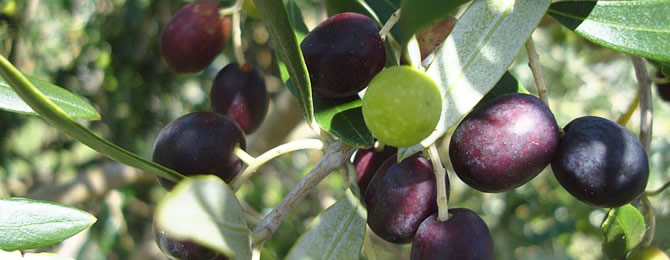Lipids and Nutraceuticals September 2024
Laurence Eyres
Remnant Cholesterol what is it?
Research has consistently shown a correlation between conventional lipid parameters, arteriosclerosis, and cardiovascular diseases. Guidelines highlight the importance of targeting low-density lipoprotein cholesterol (LDL-C) for primary and secondary prevention of cardiovascular diseases, with reducing LDL-C being still the primary lipid-lowering strategy. However, even when LDL-C is lowered to optimal levels, there is a residual risk of cardiovascular disease. Recent findings have brought attention to remnant cholesterol (RC) as a significant factor contributing to this residual risk. The close association between RC, arteriosclerosis, and cardiovascular diseases presents exciting opportunities for lifestyle interventions and medical treatments to control and lower RC levels, offering new targets for preventing and managing related cardiovascular conditions. Remnant cholesterol is what’s left after accounting for HDL and LDL.
The USA advise total cholesterol below 200 mg/dl and LDL below 100 mg/dl. To convert mmol/l (NZ) to mg/dl (USA) we multiply by 38.66. To convert mg/dl (USA) to mmol/l (NZ) we divide by 38.66. Hence 200 mg/dl equates to 5.17 mmol/l and 100 mg/dl equates to 2.58 mmol/Australia favours total cholesterol below 5.5 mmol/l (213 mg/dl).
Do you know your lipid analyses? It pays to.
Omega 3 Supplements Quality-review over 40 years
My friend Dennis Karl and I got a leave pass from the bosses to attend an AOCS omega- three seminar in Hawaii (1986) almost 40 years ago.
Apart from having a great time and travelling to the top of an active volcano, which had been free from erupting, making it the one of the most accessible and interesting volcanos in the world, We visited the summit/cone with a hire car full of people, and in fact being young and adventurous we drove to the top .. Several visiting famous lipid speakers like Dr. Reg Saynor were crammed in the back and were glad of two loopy Kiwis to drive them to the top.
The lectures and meetings were tremendous. These were pathfinding days with people like Professors Bob Ackman and Robert Gibson giving pioneering lectures on the benefits of omega three. Omega-3 was still in its infancy in those days and the use of supplements was just growing. I gave a paper on orange roughly oil and squalene. Note that in 1986 the presentations were on 35 mm mounted slides. It was just before the dawn of PowerPoint. Some highlights of the conference were:
Key principles’ in preparing low oxidized and stable omega-3 oil.
Reasonable quality raw fish oil free of moisture and iron contamination.
Modern refining using chelating agents, active bleaching agents and low physical refining temperatures.
Adding citric acid and antioxidants at the appropriate time in the processing.
Effective use of nitrogen sparging and oxygen barrier packaging.
R Saynor, T Gillott, T Doyle, D Allen, P Field, M Scott - 1986 - cabidigitallibrary.org
AOCS Workshop. Marine lipids and EPA, Hilo, Hawaii May11-14,1986
Anti-inflammatory medicines and pain
From a personal point of view, pain management is so important as we get older. Sadly, the most potent of the effective painkillers such as diclofenac (Voltaren and Celebrex etc.) cause liver damage if taken over a prolonged period. It always pays to review with your doctor the risks and benefits of taken any medication. Omega-3 does partly alleviate the pain but not completely. Ethanol works but unfortunately also has major side effects.
 Olive oil shortages and replacements
Olive oil shortages and replacements
Europe has seen a major shortage of decent quality olive oil due to crop failures and the weird weather. As far as I am aware Australasia has not seen such shortages. If not olive oil (decent quality) what else should you take? Options are avocado oil, hazelnut oil and canola (NZ).
Interesting YouTube video. Thanks to Geoff Webster
https://www.youtube.com/watch?v=BiKGydHNjGc
High quality boutique oils
Over the last 20 years New Zealand has seen the emergence of some niche boutique oils. Examples of these virgin oils are flaxseed oil, hemp seed oil, walnut oil, hazelnut oil, and locally grown canola oil. Many of these oils come from NZ South Island crops and are produced locally. They tend to be higher priced than imported oils but at least they are fresh and not fraudulent.
Dangers of used cooking oil
Repeated heating of vegetable oils at elevated temperatures during cooking is a quite common cooking practice. Repeatedly heated cooking oils (RCO) can generate varieties of compounds, including polycyclic aromatic hydrocarbons (PAH), some of which have been reported as carcinogenic. RCO is one of the commonly consumed cooking and frying medium. These RCO consumption and inhalation of cooking fumes can pose a serious health hazard. Consuming deep-fried oils has been linked to oxidative stress and inflammation, which are risk factors for neurodegenerative diseases and other chronic conditions.
- A new study in rats suggests a potential connection between the long-term consumption of reheated cooking oils and increased neurodegeneration.
- The gut-brain-liver axis appears crucial in maintaining neurological health, and consuming reheated oils may disrupt this balance.
- Experts recommend diets rich in antioxidants and omega-3 fatty acids, cautioning against the frequent consumption of fried foods.
- The use of adsorbent powder to clean up frying fats is being flouted as a wonder adsorbent. The commentary is in Israeli which makes it fascinating. It is nothing new.
NZIFST conference 2025
We are expecting two overseas scientists working with Professor Marie Wong and her PhD student. A session at the conference is being planned. Watch this space.
Trivia
My family think me somewhat eccentric for having oils and fats as a hobby. However, I have been well exceeded by a Dane-Professor Steen Stender. He has – for professional purposes – been a collector of cake wrapping paper, in folder after folder, country after country He has accumulated 5,000. The cake wrap is a part of the story of the harmful trans fats, or trans-unsaturated fatty acids, which have been banned in Denmark since 2004, but until then were found in lots of things, including margarine.

